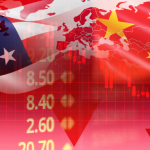Executive Summary
-
BRICS expansion signifies a shift in global economic power from traditional Western economies to emerging markets.
-
The inclusion of new member countries can lead to stronger economic ties and increased trade among BRICS nations.
-
Businesses must adapt to the changing geopolitical landscape to maintain competitive advantages.
-
Investors should consider the potential for new market opportunities and risks associated with BRICS expansion.
Introduction
The global economy is ever-evolving, and the expansion of BRICS (Brazil, Russia, India, China, and South Africa) represents a significant shift in economic power. For investors, business leaders, and policymakers, understanding the dynamics of BRICS expansion is crucial in a world where emerging markets are gaining influence. This article delves into the implications of BRICS expansion on global economic dynamics, highlighting why this topic is of paramount importance to stakeholders worldwide.
Definitions / Context
The BRICS nations are a group of emerging economies that have been collaborating since 2006 to promote peace, security, and economic development. Recently, there have been discussions around expanding this group to include other emerging economies. This expansion aims to bolster economic ties, increase geopolitical influence, and create a multipolar world order that challenges the dominance of Western economies.
Benefits / Pros
-
Increased Trade: Expansion can lead to enhanced trade relations among member countries, potentially reducing tariffs and fostering economic integration.
-
Diversified Economic Power: By including more countries, the economic power is spread out, reducing dependency on Western markets.
-
Enhanced Political Influence: A larger BRICS group can wield more influence in global political forums, shaping policies in favor of emerging economies.
-
Access to New Markets: Businesses within BRICS countries gain easier access to new markets, stimulating economic growth.
Risks / Cons / Challenges
-
Geopolitical Tensions: Expansion may lead to increased tensions with Western powers and could result in trade wars or sanctions.
-
Economic Disparities: Differences in economic development levels among new and existing BRICS members could lead to internal conflicts.
-
Regulatory Challenges: Harmonizing regulations across diverse economies poses a significant challenge, potentially slowing down integration efforts.
Step-by-Step Process
How to Navigate BRICS Expansion as a Business
-
Market Research – Understand the economic landscape of new BRICS countries.
-
Regulatory Compliance – Stay updated with changing regulations and compliance requirements.
-
Strategic Partnerships – Form alliances with local businesses to gain market insights and reduce entry barriers.
-
Risk Management – Develop strategies to mitigate geopolitical and economic risks associated with BRICS expansion.
A leading global manufacturing company expanded its operations into new BRICS member countries, leveraging economic integration to reduce production costs and increase market share.
By forming strategic partnerships with local firms, the company successfully navigated complex regulations, resulting in a 15% increase in annual revenue. This move also diversified their supply chain, enhancing resilience in the face of international uncertainties.Global Manufacturing Firm Gains from BRICS Expansion–
Expert Tips / Strategic Insights
Epiidosis Recommends:
-
Diversification: Spread investments across multiple BRICS markets to balance risk and return.
-
Cultural Sensitivity: Embrace local customs and business practices for smoother market entry.
-
Long-Term Vision: Focus on sustainable engagement aligned with geopolitical trends.
Tools / Resources / Calculators
-
BRICS Trade Estimator – Estimate potential trade and tariff benefits based on country-specific integration metrics.
-
Regulatory Compliance Checklist – Ensure your operations align with legal frameworks in various BRICS markets.
-
Economic Indicators Dashboards – Access real-time data from IMF, BRICS Chamber, and other institutional sources.
Conclusion
The expansion of BRICS has the potential to significantly reshape global economic dynamics. With a broader coalition of emerging economies, the group may exert more influence in international trade, policy-making, and investment landscapes. Businesses and investors must adapt proactively to these changes, leveraging opportunities while mitigating associated risks. Understanding the full scope of BRICS expansion is now essential for forward-looking decision-making.




















